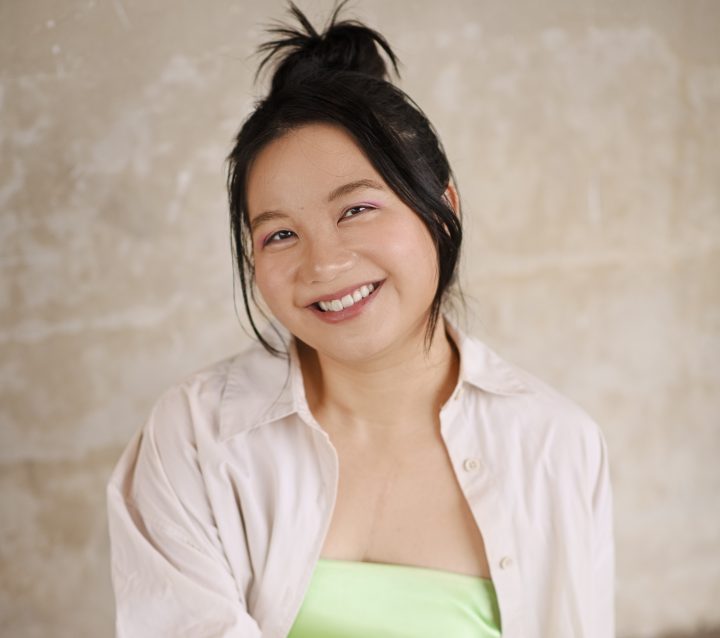Please tell us your story! How did you get to where you are today?
I’m from a family of first generation immigrants and was born in Singapore but brought up in Perth, Western Australia. I think despite many others sharing my story, growing up I still felt particularly alienated from my culture, roots and sense of belonging. One of the only things that helped me to find that belonging was my love for music and writing, and that led me to start my media platform Asian Pop Weekly back in 2010 to bridge the gap between Asian music and the world through music journalism. After a lot of hustle, sacrifice and creative thinking I found my way into the music industry through my credentials at Asian Pop Weekly and started working across the Greater China, Singapore and Malaysia markets in a myriad of roles. During this time I encountered further challenges that had more to do with my gender than my race, and so in 2024 I founded fluffle, Asia’s first women’s music collective to encourage open conversations around gender equality and to provide a safe space for women in Asia’s thriving but still maturing music industry.
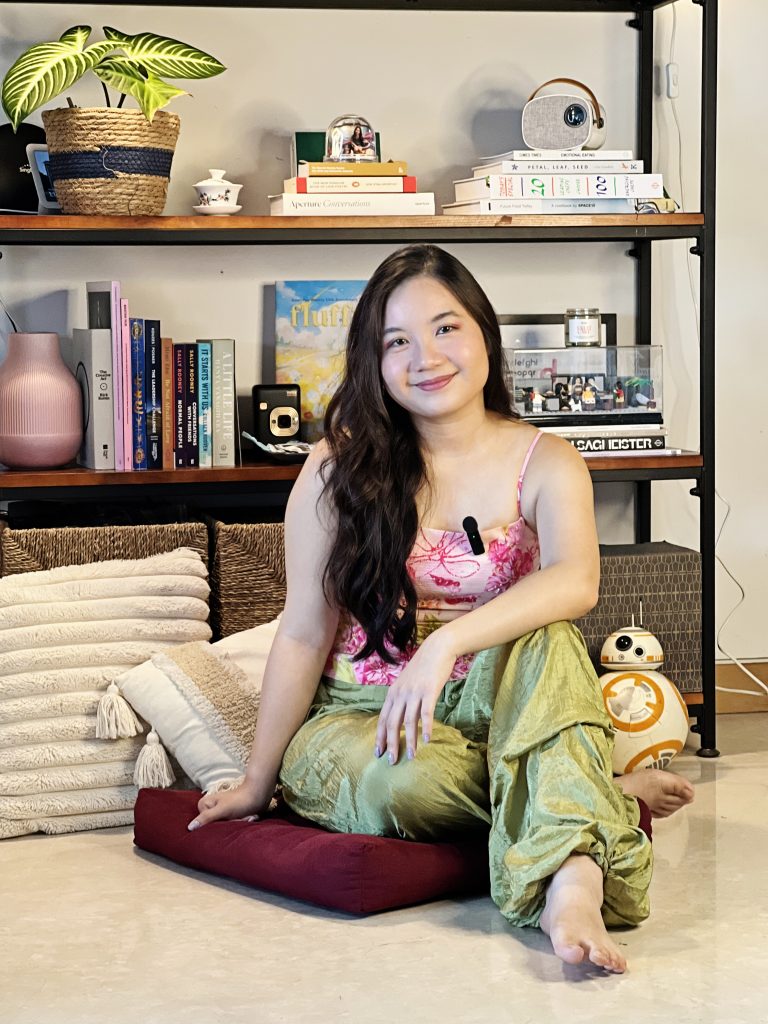
Why did you want to get into the music industry?/What was the moment you realised that bridging cultural gaps through music was something you wanted to pursue professionally?
I’ve always had a particular interest in two things – music and writing. ‘Being in the music industry’ was never something at the top of my mind. But I soon realised that when I combined my passion for music and writing, it was able to produce unique results and perspectives that were received well and also quite differently to what others were doing. So I just kept pursuing that passion for music and writing, finding different ways to combine them, and before I knew it I had leaned into the music industry. It was never necessarily about a certain end goal for me, of obtaining any specific title or credit, but more about finding where my passion and natural proficiency intersected and could bring me the most growth and fulfilment.
Do you feel that higher education is a necessary step to enter the music industry?
I think it depends what defines ‘higher education’, but if the question was ‘do you need a music business degree to work in music’ the answer from me is a strong no. Doing a degree in music business was not an option for me as my family were not supportive of me wanting to pursue music, but I am also grateful for my experience in different specialties as I feel it brings you a different edge to whatever work you choose to do in the industry. From a humanities perspective, one of the reasons the music industry is one where gender equality is a hot topic is because the barriers to entry are low. Essentially, there are no set qualifications you need to get a job in any sector as long as you have the portfolio or resume. However, to an extent the lack of barriers to entry could also put women in compromising situations as well, so I think there is a balance that needs to be struck there as well.
“Cultural exchange is one of the most complex parts of the music industry, as it requires deep understanding of multiple cultures and disciplines.”
What inspired you to create Asian Pop Weekly, and how has it evolved since its inception?
Asian Pop weekly was my way of maintaining a connection to my roots and my mother tongue, but it has blossomed into a conduit for all kinds of cultural exchange, both for myself and for our readers. We have become more multifaceted and dynamic in terms of the content we create, now venturing into podcasts, radio even as well as our usual interviews, think pieces and translations, but the message has always been the same- maintaining space for cultural dialogue through music and servicing those who see value in the margins between cultures.
Let’s talk about the highs vs the lows of your career. What is your greatest achievement?
I think my greatest achievement is the fact that I am still just as passionate about the music industry and my vocation as when I first started. I believe time is any human’s greatest resource, and the fact that I can spend the majority of my time truly enjoying and being aligned to the work that I do is an act of self love and investment in myself on some level. I think everyone’s greatest achievement should be living in alignment to themselves and continuously working to make every version of themselves proud, and I am really proud to have worked tirelessly for 16 years now to bring my vision for bridging gaps for Asian music to life. To see it come to fruition and be acknowledged and now encouraged is a true full circle moment.
Who has been your biggest champion in your career?
I would have to say myself! I grew up in a very conservative community where most friends and family were pursuing careers in health sciences, accountancy, law or medicine. Furthermore, looking back I can understand the concern my mum might have had given that we were first generation immigrants and she worked really hard to give us a financially stable life in a new country. But as a result of that, I had to be the first and most consistent champion of my own vision for what I wanted to do and what I could achieve, because it simply hadn’t been done before. It seemed to be a tall order for an Asian Australian girl with poor command of her native tongue to find her place in the Asian music industry, much less bring it to wider audiences. But this taught me to never underestimate what you can achieve, and as I continued to thrive, it gave me even more confidence in taking risks and trusting my intuition which has been an essential skill for me as an entrepreneur in the volatile music industry. It is a brilliant competitive edge for anyone to have, especially women trying to find their place in the music scene.
“never underestimate what you can achieve”
What would you tell your younger self if you could tell them anything?
You need to be the first person fully in your own corner before you can expect other people to do the same. It is so empowering to fully back yourself, and not worry about the opinions of others. The possibilities become endless when you realise that there is so much you can achieve without the blinkers on.
What is your big picture career goal?
To become an entrepreneur who is able to run a business that finds the balance between the creative and commercial – one that is financially sustainable while bringing net positive influence to the Asian music industry and enhances global representations of Asian music.
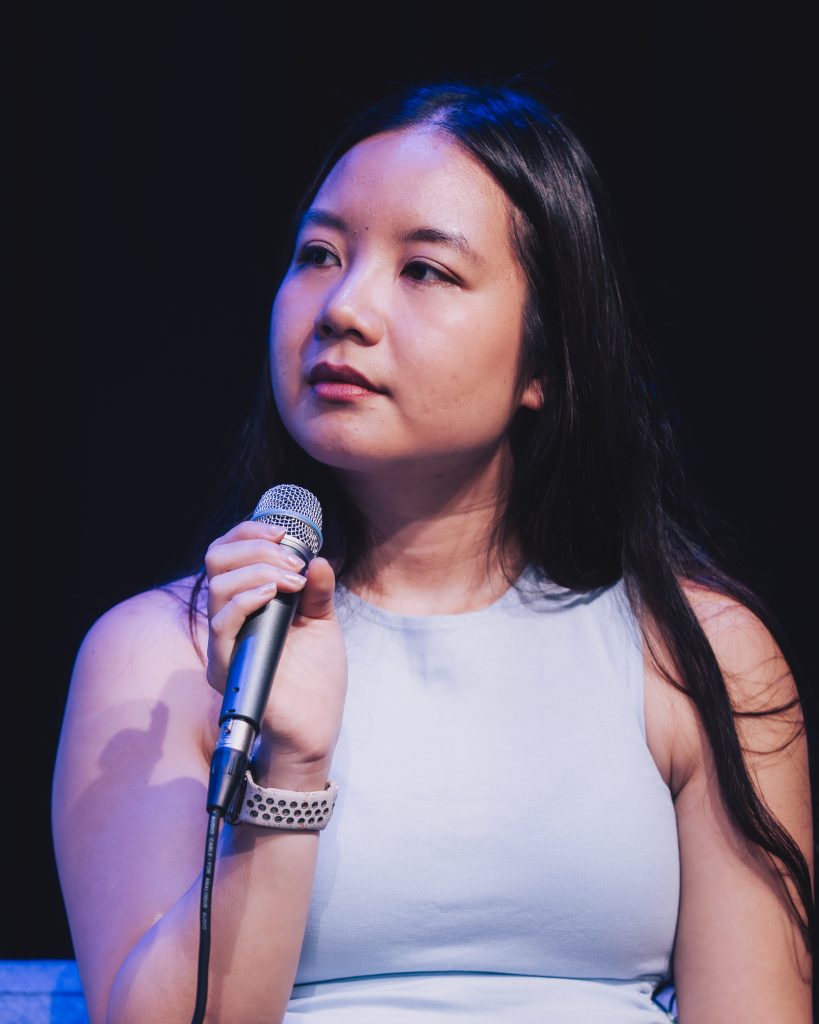
Who are your top 3 ‘artists to watch’?
Gayathri Krishnan, an Indian American artist whose voice and presence brings an unpretentious healing and wholesome energy. I love the way she so deftly and naturally incorporates Carnatic music into her discography in exciting and innovative ways.
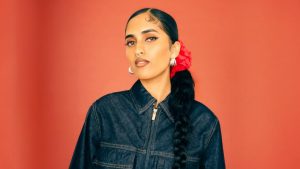
Karencici, a Chinese American artist who has just gone from strength to strength especially now as an independent artist, I feel like her creativity and individualism as an artist has gone to new levels, from her cutting edge visual identity to her voracious exploration of the relationship between pop, urban genres and currently nostalgia in some of her works too!
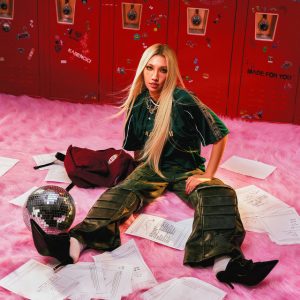
Nemahsis is a Palestinian-Canadian artist who is changing the landscape for what it means to be an artivist in this day and age. I love how she never shies away from her message, but at the same time puts it across in such uniquely poetic ways that cut straight to your soul. And THAT VOICE! It’s no wonder that the likes of Stevie Wonder are equally enchanted by Nemahsis.

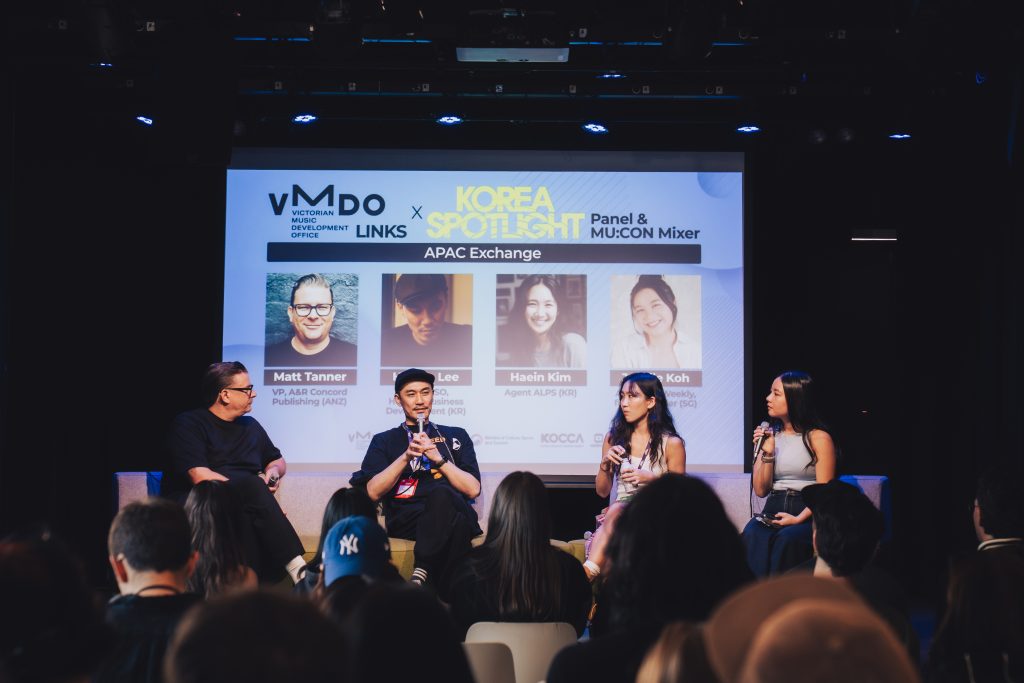
Tell us about Fluffle….
fluffle is my new baby born out of necessity. After almost a decade in the music industry, I realised that race and cultural identity was not the only challenge that many in the Asian music industry faced. As I continued to dig deeper into the reason and solution for many of my own traumas and brushes with sexism, I was surprised to find very few resources or knowledge available on gender equity in music that was applicable to Asian music industries. It kind of felt like a perfect way to combine everything that I have learned and worked towards into something that is very much needed within the realm of what I’m passionate about. I envision a dynamic space which educates and empowers new generations of Asian women in music to redefine the rules for themselves. To make independent decisions, stand their own ground, and be confident in their options without compromising their values or boundaries. We’ve started with some think pieces looking into the climate for women in music in a few different parts of Asia, and are currently working on the fluffle podcast. The plan is to become a resource hub for women in music throughout Asia.
What have been some of the biggest challenges in advocating for Asian music in Western markets?
For advocating for Asian music in general, I would say ethnocentrism. Everyone inevitably bring their perspectives and agendas into any kind of cultural activism or promotion, be they on the receiving or the giving end. Cultural exchange is one of the most complex parts of the music industry, as it requires deep understanding of multiple cultures and disciplines. At the same time, it also requires a unique sense of empathy and highly proficient communication skills to meet stakeholder demands. Additionally, most local industries are incentivised to prioritise their own music or other music markets that have commercial value. For individual actors trying to commit to such a daunting cause that won’t reap rewards overnight, it’s common for projects to fail and never receive the weighty commitment needed to bring it to fruition.
“I think everyone’s greatest achievement should be living in alignment to themselves”
How do you navigate the balance between cultural authenticity and global accessibility in the way you present C-Pop?
I think it’s very easy to get caught up in cancel culture and what’s objectively “right” or “wrong”. What works for me is continuously being curious about my own perspectives, and having open conversations that allow those perspectives to be challenged. As your experiences continue to expand and you continue to maintain this sense of critical self awareness, that’s the sweet spot between authenticity and accessibility. Be open to letting your perspectives change over time, that’s important too!
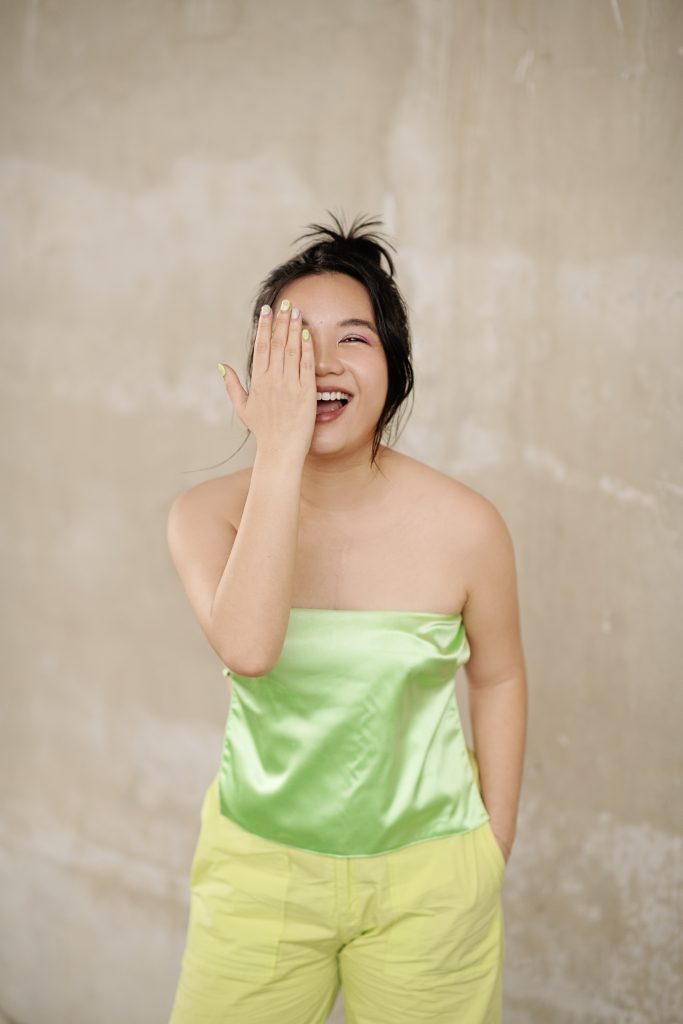
You spent time growing up in both Singapore and Australia. How did those environments shape your musical identity and connection to Asian pop?
It’s been really interesting to see how my relationship with both these countries have changed over time as I’ve moved back and forth between both. I used to give myself a lot of pressure (and social pressures don’t help either) to make a black and white decision when it comes to preference and assigning of cultural meaning, but the older I get the more I realise it’s super fluid and always changing. I think this has definitely shaped my perspectives on Asian music and what defines it. The curations we put out over at Asian Pop weekly and fluffle definitely are influenced by this fluid, glocal mix of artists that inspire us and pave new possibilities for the Asian music scene.
What would you say to someone who’s just discovering Asian music and doesn’t know where to start?
Dm us and we’ll point you in the right direction!
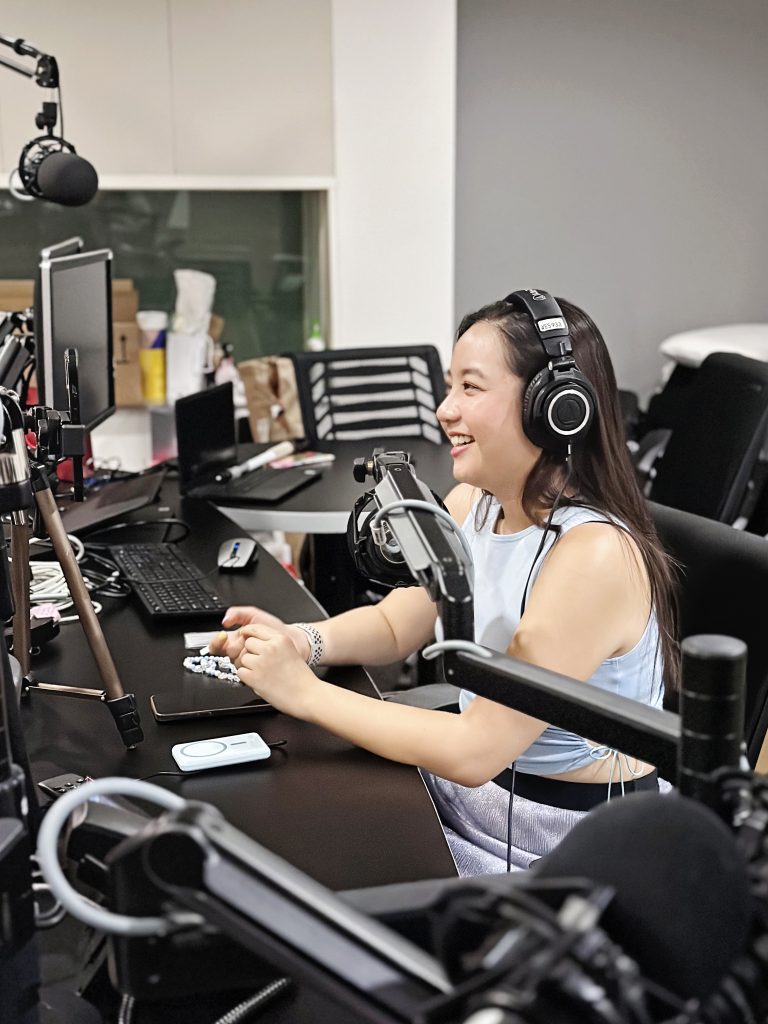
What can we all look forward to for 2025, any big projects you can let us in on?
After launching fluffle, Asia’s first women’s music collective in August 2024, we launched our biggest project to date, the fluffle podcast in March this year. The podcast will release one episode per month til the end of the year, and I am super excited for some of the straightforward, hard-hitting conversations we’ve had with some powerhouse women in music to reach your ears! Also working on a special showcase in Singapore later this year.
“the message has always been the same- maintaining space for cultural dialogue through music and servicing those who see value in the margins between cultures”
What is your go-to Karaoke song?
A weird choice but a song called 一步成诗 by chinese dutch artist Diana Wang. It’s the perfect mix of restraint and release with Eastern and Western influences, and I love to use it to introduce new sounds to my friends!
